Imagine you own a growing website that is hosted and managed by your ISP or by a renowned hosting solution provider. The DNS is an intricate and essential part of your whole website setup that enables it to stay alive and glowing 24/7 on the internet; it is most likely managed by your webhost alongside hosting your website.
However, as your website grows, there comes a need for faster and more responsive user interactions via the internet. For this reason, you should set up your own DNS infrastructure or manage it through dedicated DNS management software like ManageEngine CloudDNS.
The managed DNS model is where customers who own websites rely on dedicated third-party DNS management service providers that host and manage complex global DNS resolution architecture to ensure it is automated and optimized for speed, security, high performance, and reliability, and that it delivers superior application experiences at scale to end users worldwide.
DNS management service providers offer global authoritative DNS nameservers that enable domain owners to store their domains' DNS records and use them as target name servers for their domains during domain resolution.
Providers' advanced global DNS infrastructure supports diverse and distributed application infrastructures that span data centers, the cloud, and edge points, which helps customers reduce the complexity of migrating and expanding application delivery footprints to meet business needs.
These DNS management service providers offer SaaS-based DNS management solutions that deliver highly performing and highly available cloud-native solutions that scale globally, extend through open APIs, and withstand cyberthreats, all while saving time and money.
CloudDNS is user-friendly, SaaS-based DNS management software through which you can set up your customized domain space by adding, editing, deleting, and applying different configurations for your DNS records, such as:
Customize end users' online experience with smart traffic-steering policies.
| GeoDNS: Facilitate client-location-based routing for Content Delivery Networks (CDNs) with optimized latency. | IP filtering: Enable IP- or subnet-based routing to achieve better latency and security. | |
| ASN filtering: Control routing to specific network groups with Autonomous System Number (ASN)-based closest routing. |
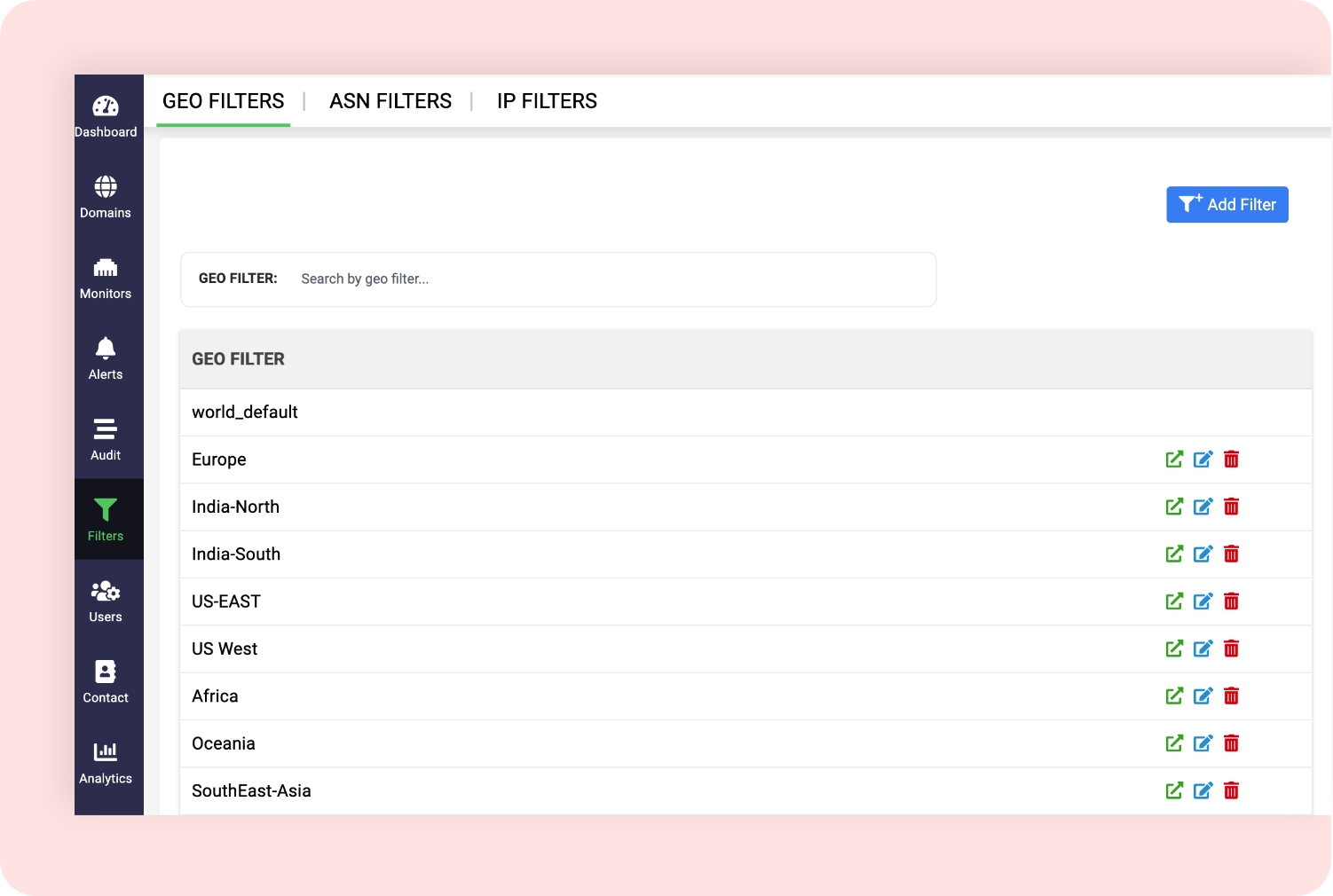
Keep your domain ever-ready and attack-resilient with advanced monitoring, automation, and reporting capabilities.
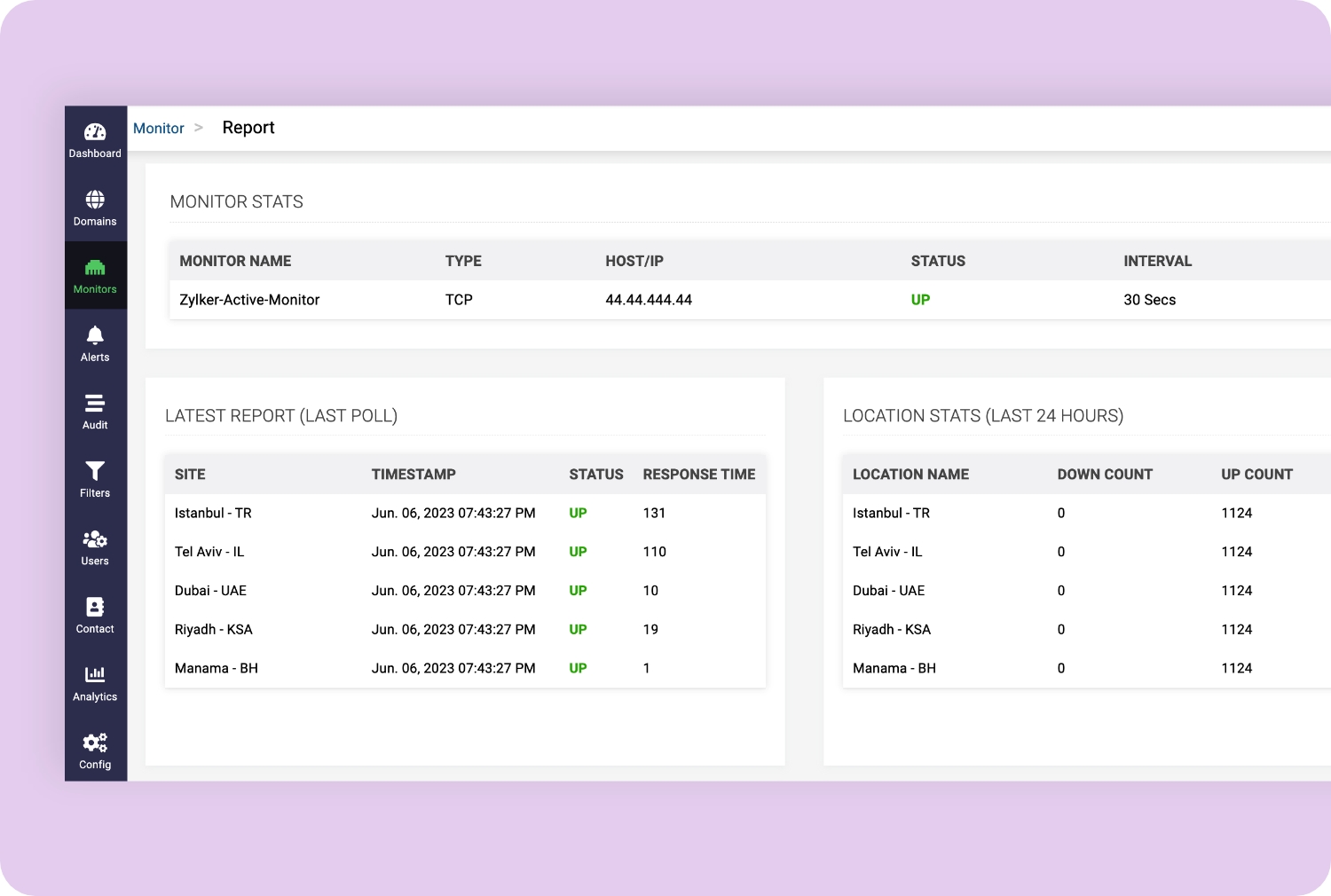
Minimize downtime with integrated monitoring and backup records.
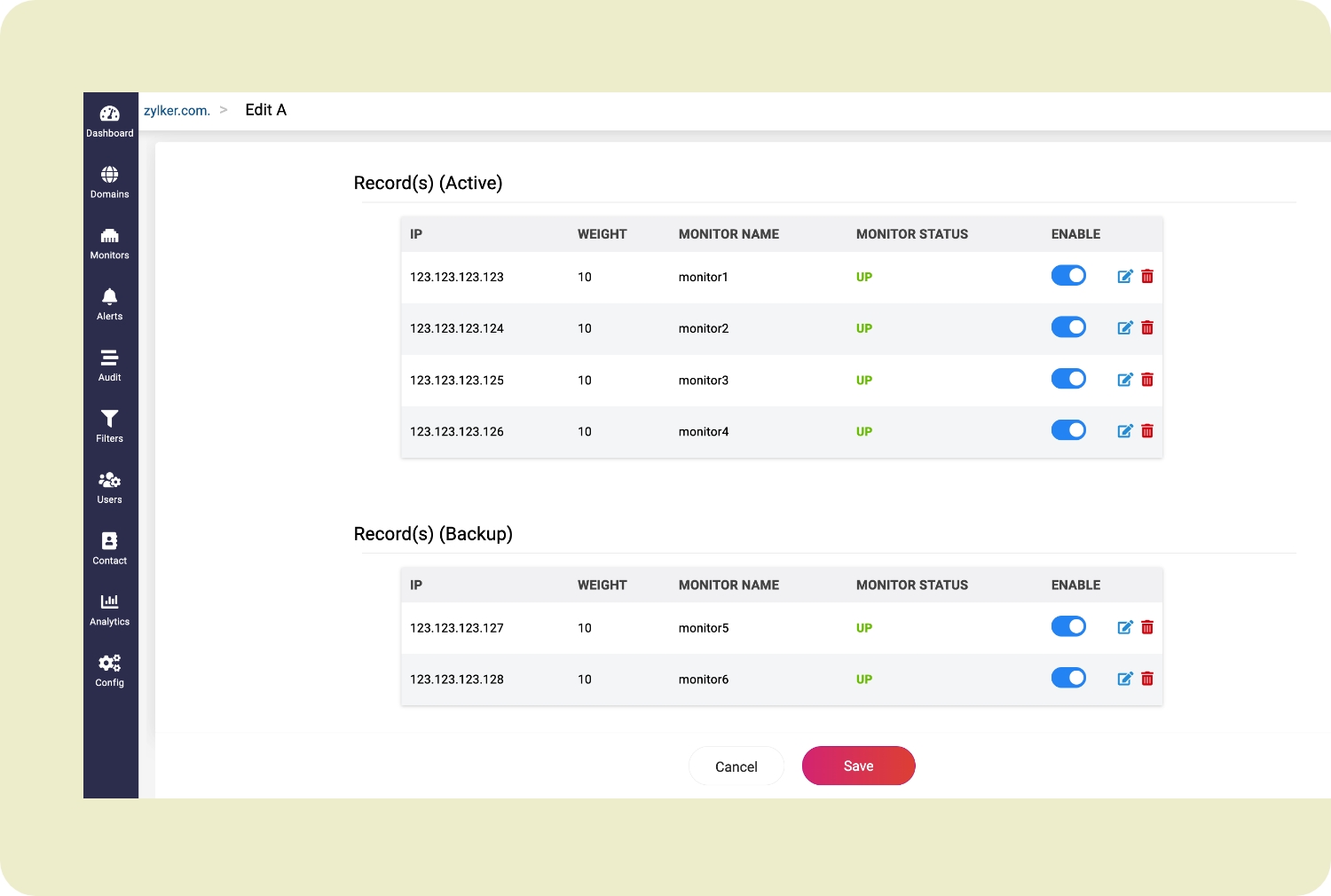
Make use of our DNS name servers available in all vantage points across the globe.
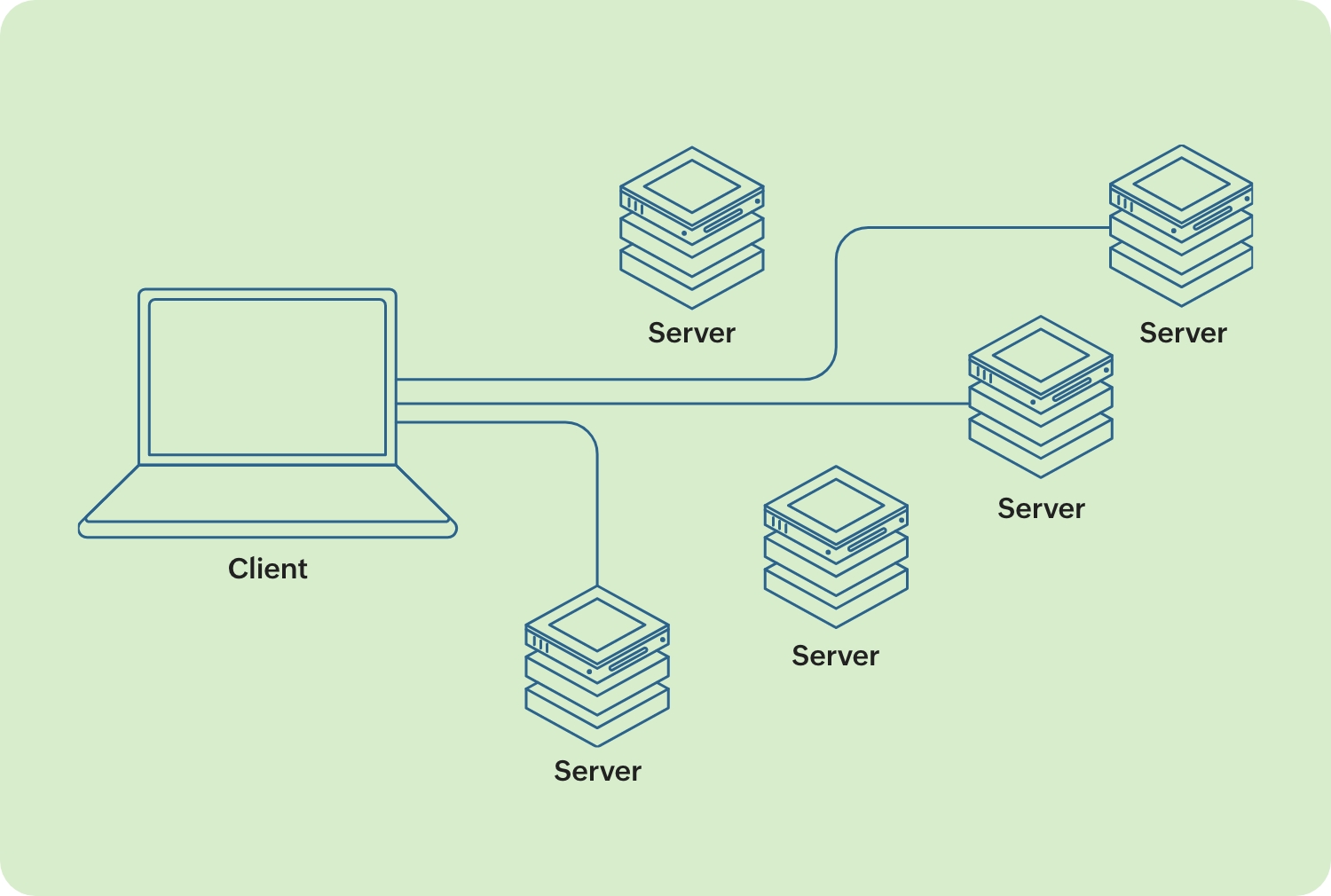
Ensure high availability and performance with multiple redundant name servers across the globe on an AnyCast network.

Easily replicate DNS data across DNS servers using the AXFR protocol.
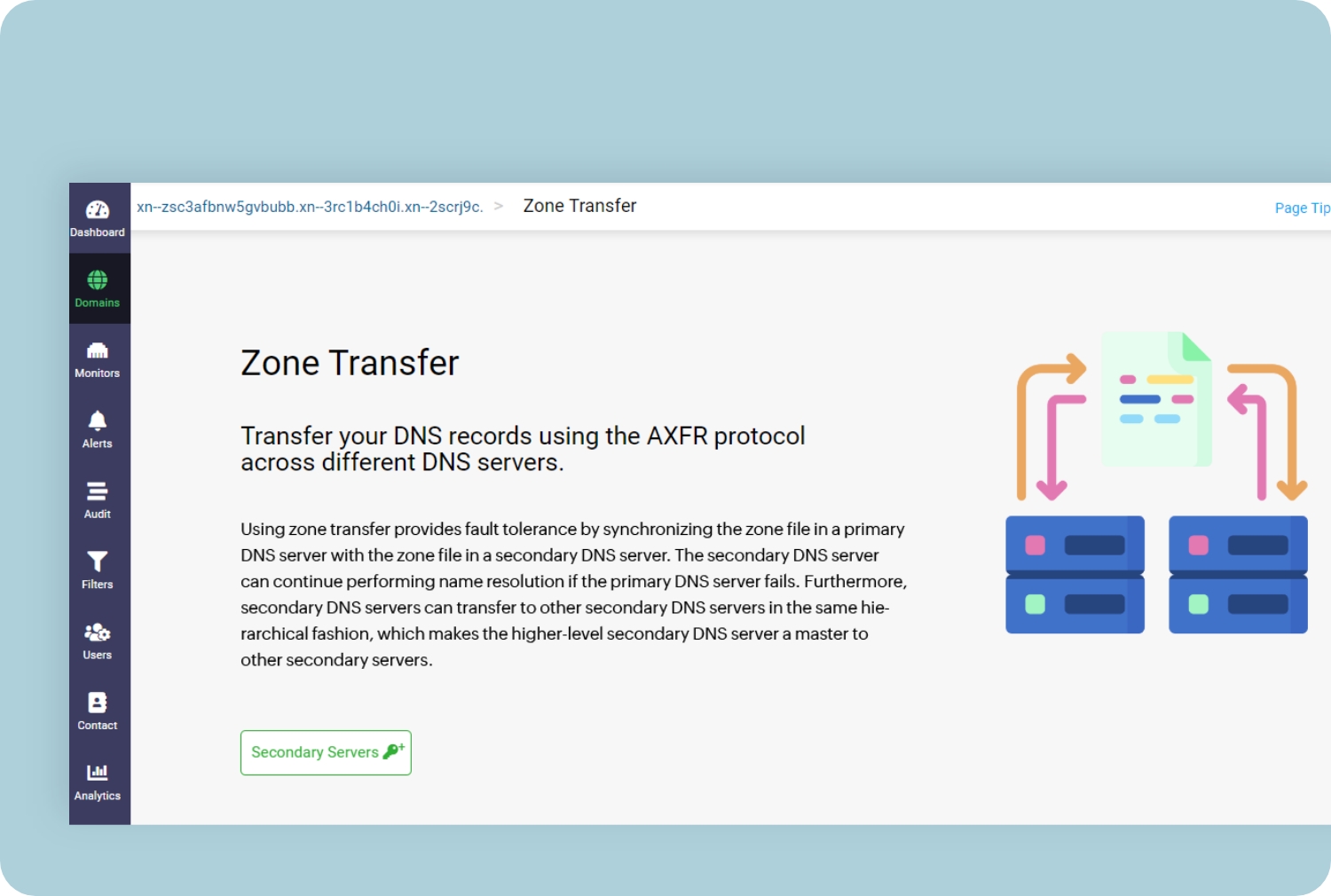
Access user- and developer-friendly APIs for automation.

Enable critical protection with six best automated DNS security practices:
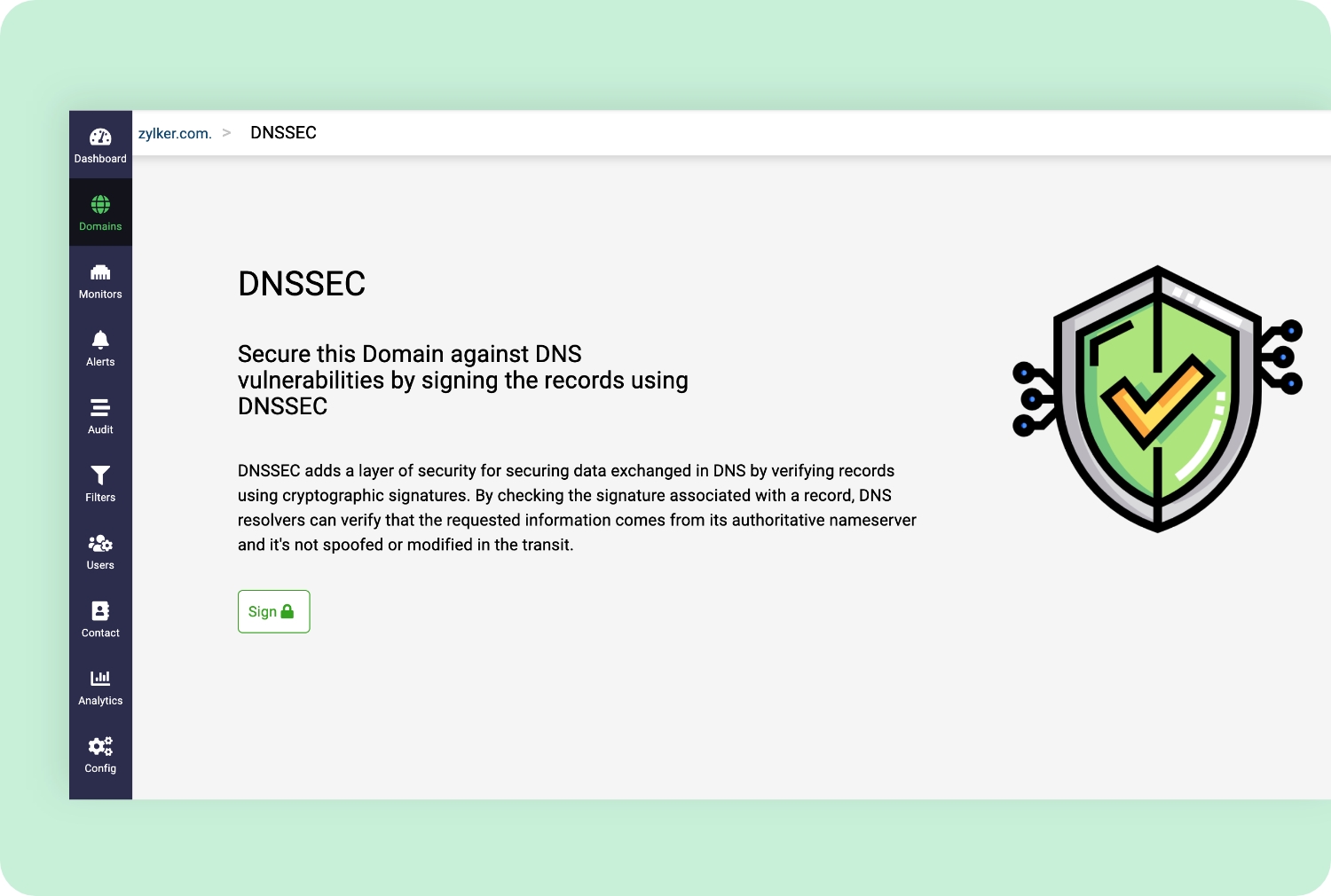
| Domain Name System Security Extensions (DNSSEC) to validate data integrity | High availability via adept DNS redundancy | |
| High resiliency via global IP AnyCast network | DNS administration with strict access controls, multi-factor authentication, and security audit logs | |
| Protection against DDoS attacks with 24/7x365 monitoring | Secure zone transfers with Transaction Signature (TSIG) authentication |
Gain real-time visibility into DNS traffic spread and marketing-friendly data.
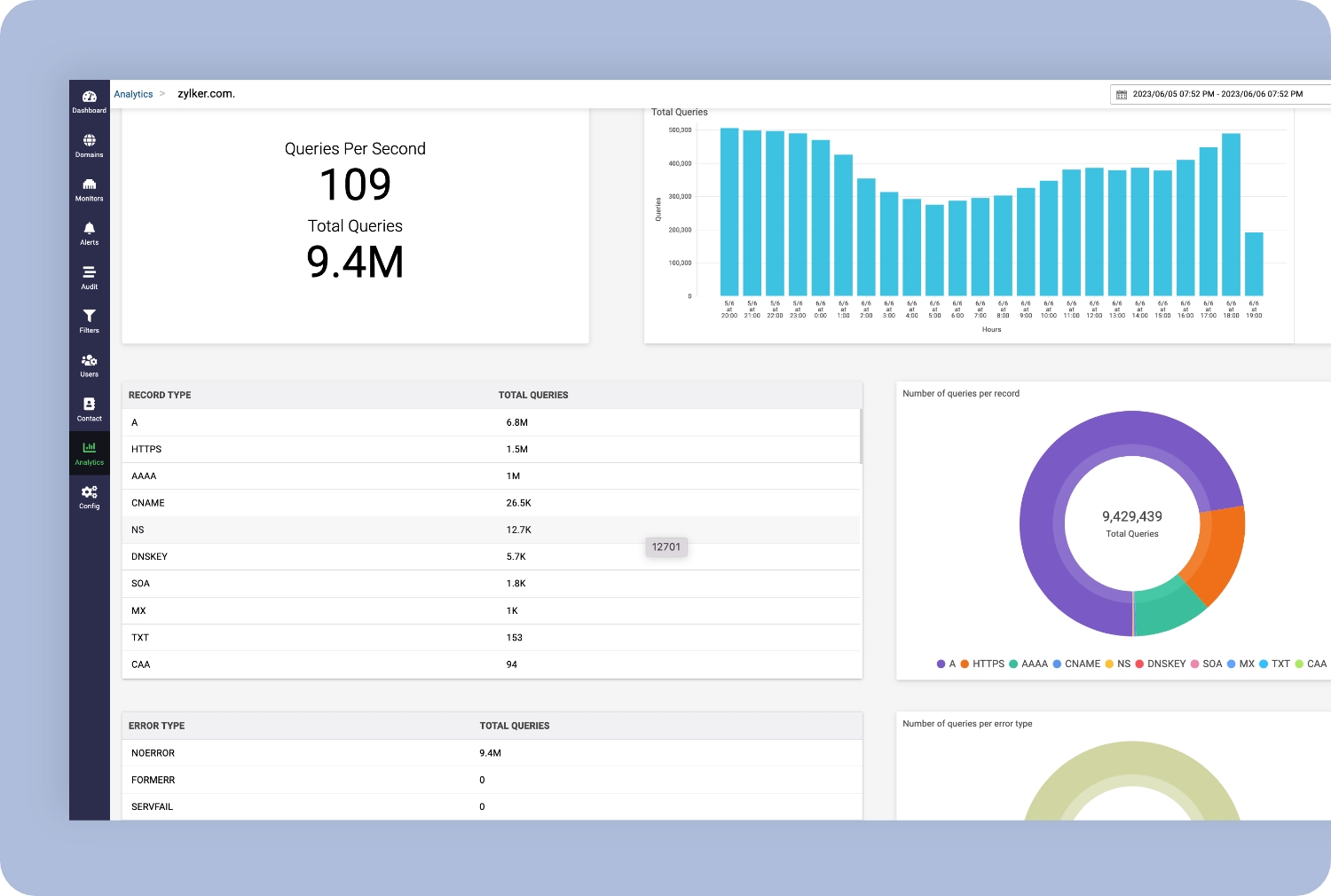
Migrate from major providers like Cloudflare, Google CloudDNS, AWS Route53, and Microsoft Azure in a single click.

Easily import and export zone files as JSON or BIND.
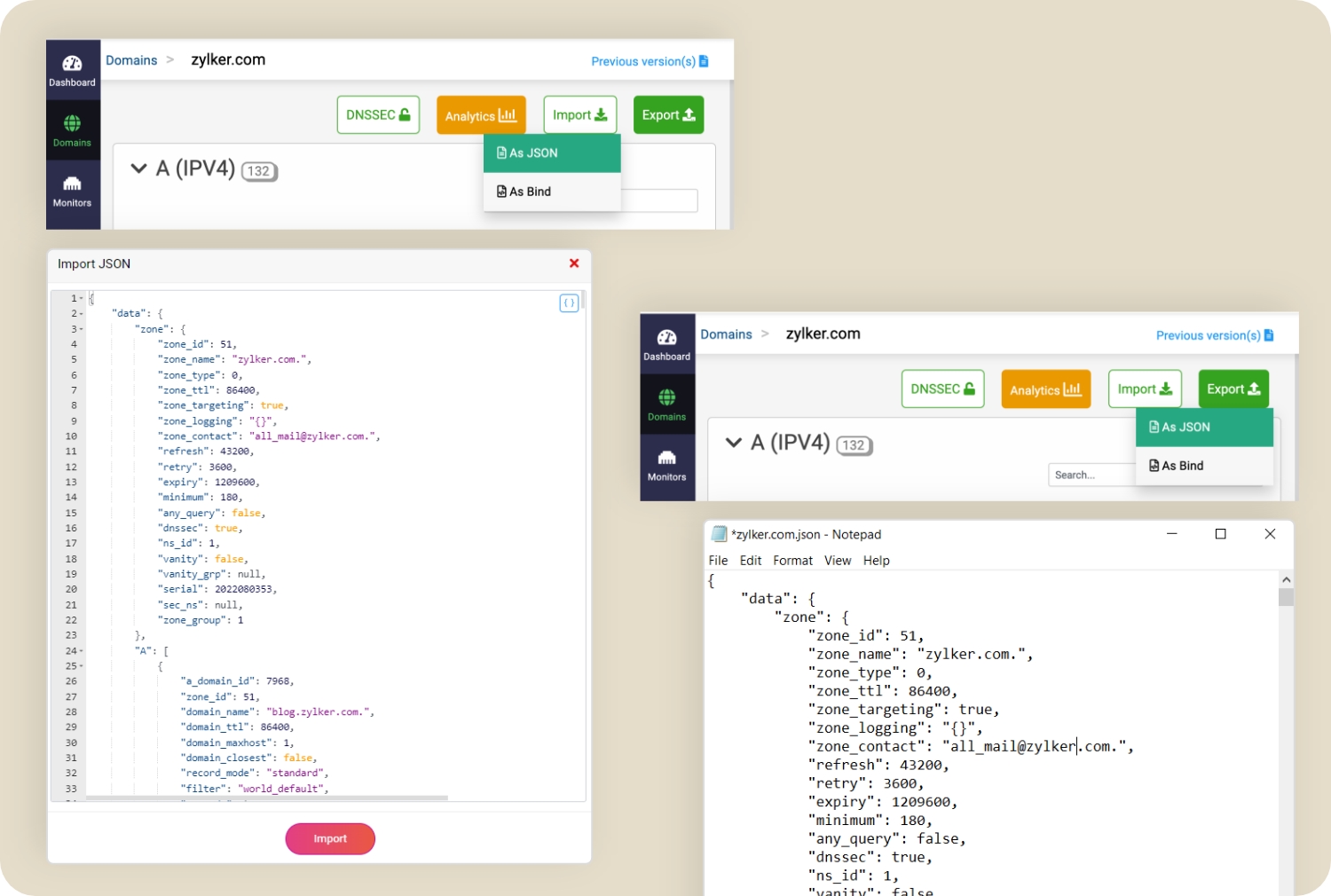
Check out our guide to setting up your own DNS management infrastructure with ManageEngine CloudDNS.
Managed DNS providers can do all the heavy lifting for you by taking over the tasks of creating and maintaining your own authoritative DNS servers, thereby enabling you to focus on other critical business functions. This enables you to take administration into your own hands all while automating the investigation, diagnosis, and remediation of DNS problems.
Hosting your DNS resolution infrastructure with a managed DNS provider like CloudDNS can result in cost savings, as resources are shared among multiple customers in a multi-tenant environment, eliminating the need for hardware and software maintenance costs.
Another benefit is improved security posture since managed DNS providers have measures in place to handle security and DoS threats to DNS servers. This means that website owners do not need to update DNS servers running on-premises, freeing up valuable time and resources.
Performance is also improved with a managed DNS provider, as they often guarantee fast DNS lookups as part of their service offering. This is essential for delivering optimal website and app performance, which can result in higher customer satisfaction and engagement.
Finally, managed DNS services offer increased availability, as they provide infrastructure that is sufficiently resilient and redundant. This redundancy can also be used to support DNS load balancing, ensuring that client requests to the domain are distributed across a group of servers. This provides the best possible availability and reduces the risk of downtime or other issues that can negatively impact website performance.
The Domain Name System (DNS) is a critical part of the internet infrastructure that takes the responsibility for quickly looking up and translating human-readable, user-friendly domain names into IP addresses that are easily interpreted by computers. When an end user keys in a domain name in their web browser, the DNS looks up the IP address associated with that domain name and routes the request to the appropriate web server.
DNS management involves configuring and maintaining the DNS records associated with a domain name, as well as tasks such as creating, editing, and deleting DNS records, which define the relationship between domain names and their corresponding IP addresses, email servers, and other services. DNS management also includes setting up DNS servers, managing DNS zones, and configuring DNS settings for optimal website performance and security.
An effectively managed DNS is essential to ensure that a website is always available, loads quickly, and is protected from cyberattacks such as DNS spoofing and DDoS attacks. By using DNS management tools and services, website owners can easily manage their DNS infrastructure, make changes to their DNS records, and troubleshoot any issues that may arise.
With a managed DNS setup, you gain complete control over your domains; email settings; editing your zones and their resource records; defining how visitors from various parts of the world view your website with geo filters; and diagnosing, automating, controlling, and fixing DNS problems.
A website supported by a managed DNS resolution infrastructure includes an integrated, powerful DevOps tool set, such as Infrastructure as Code (IaC), visualization tools, integrated monitoring checks, security audits, and analytics, which ensure a positive developer experience.
An API-first approach to DNS management allows for seamless integration with DevOps and NetOps practices and tool sets, resulting in improved automation and IT efficiency for customers. This support for your website, app, or service ensures that DNS management becomes an integral part of the overall workflow. Additionally, exposing all the functionalities of DNS management via an easy-to-use RESTful API provides a great developer experience. This makes it easier to manage and maintain the DNS resolution infrastructure of any complexity or scale.